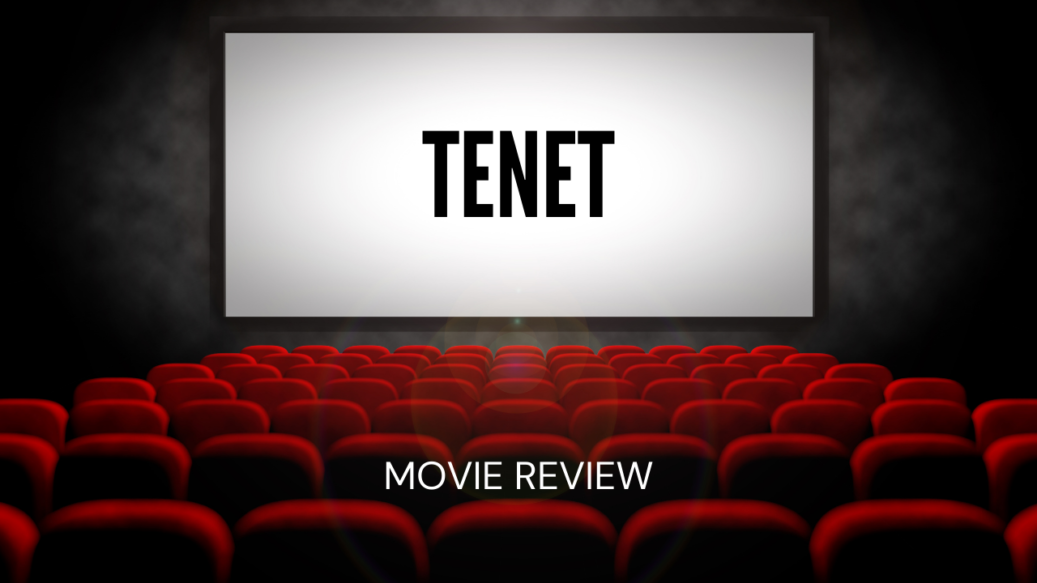Faith in the Future
Tenet is an action-soaked, time-travelling, James Bond-esque film that will flood your bloodstream with endorphins but make your brain… itchy.
*Warning, contains spoilers*
It’s also a story about belief and self-sacrifice.
And despite its confusing nature, it remains one of the most unique stories to come out of Hollywood in recent years, likely requiring multiple viewings to appreciate all of its nuances.
Philosophy and Science
One of few blockbusters brave enough to be released post-pandemic to reduced-capacity theaters, the film comes from the mind of auteur director Christopher Nolan, a master of mind-bending/time-bending plots. Memento’s (2000) unique story-in-reverse gimmick vaulted him into the spotlight. He’s steadily climbed the industry ladder to the point now that studios will gladly invest hundreds of millions of dollars to see him play with our brains through hits like Inception’s (2010) dream-within-a-dream, and the space-faring Interstellar (2014).
Nolan’s latest project builds on his previous work on time, revolving around a future technology coined “inversion.” This is a process that flips an object’s or person’s entropy allowing them to essentially travel through time in the opposite direction.
There are some visually interesting rules that keep the idea grounded: a person must bring their own oxygen supply and mask apparatus after inversion (helpful in keeping track of who’s going backwards through time), which pays off with trippy moments like when an explosion causes an inverted person to feel cold rather than heat.
There is a lot of philosophy and science at work here. But the real question is: CanTenet be enjoyed without understanding all the time mumbo-jumbo?
The answer is an emphatic “yes” if you like watching secret agents travel the globe in pristine suits, frenetic gun battles, a refreshing focus on practical effects over CGI (that plane scene!), and powerful performances from fantastic actors.
Lead John David Washington (son of Denzel Washington) plays his part with an understated confidence, Robert Pattinson steals every scene he’s in with his rogue-like charm, and Elizabeth Debicki throws down a powerhouse of a performance as the beleaguered Kat, trapped in a marriage with an arms-dealing psychopath, but never succumbs to damsel in distress cliches.
Taken together, Tenet is an exciting film, beautifully shot using the slick cinematography Nolan has become known for. And if you’re willing to delve into the thematic elements, you also won’t be disappointed.
Belief And Hope
There’s a crucial scene near the “end” where the Protagonist (played by John David Washington) begins to see the full extent of how the ability to move backwards through time has and will influence his life and the world.
Shocked to see how the beginning and the end have always been connected, he asks his colleague Neil (played by ever-enigmatic Robert Pattinson) whether he would call everything they’ve experienced, predetermination.
Neil refuses to call the phenomenon destiny or fate but simply settles on the term, reality.
In one sense, the reality I believe he’s talking about is Nolan’s specific model of time travel. Many agree there are four basic types in fiction, and Tenet’s reality adheres to the Single Timeline theory. Unlike the Multiple Timelines, Repeated Loop or Universe Fights Back models, Single Timeline is often considered the most elegant.
A good example is The Terminator (1984). The film ends as Sarah Connor realizes she will live with the sobering knowledge that her son John must be prepared for his role as leader of the resistance in the dark future, and that John must one day specifically pick his father, Kyle Reese, to be sent through time to protect his mother (Sarah) from the time-travelling terminator. He must do this knowing Reese will die, but not before falling in love with his mother and becoming his father. Taken together, the story creates a closed loop, with the past and future working collaboratively all along.
By accepting his “Single Timeline reality,” Neil resists romanticizing their experience, even though they’re living out a grand destiny in saving the world. He instead remains intent on accepting his role in the universe with humility. He is content in living in the present even though he knows what’s going to happen; rather than fighting the flow of time, he embraces its current both forwards and backwards when necessary.
Neil’s ultimate sacrifice, then, is not seen as something that should be avoided, but rather a crucial role to play.
In a sense, Nolan is really making a statement about belief and hope.
Neil’s faith in their mission stands in stark contrast to the selfish Sator, the antagonist who also employs the power of “inversion,” with only his personal gain as a guide.
Also aware of his impending end, Sator is happy to use a superweapon to wipe out the world, as long as it takes place after his death.
“If I can’t have it, no one can,” is Sator’s motto.
Neil is the opposite. He would willingly die to stop Sator and ensure the universe continues, even if he has to live with that knowledge and goes so far as to ensure his exact death plays out the way it “should”. The symbolism of Christ’s sacrificial love and victorious death is not hard to see here.
In a way, I feel that Christians are Washington’s Protagonist: We must move forward in hope that our future is held in good hands, keeping faith that everything will work out in the end, even if we don’t understand exactly how in the present.
We must move forward in hope that our future is held in good hands, keeping faith that everything will work out in the end, even if we don’t understand exactly how in the present.
Tenet is exactly the type of movie we’ve been missing. In an era of remakes, reboots, franchise fatigue, hand-holding, and unabashed pandering to our collective nostalgia, it’s refreshing to see a story take risks and respects the intelligence of the audience.
Or, at least this movie respects the audience enough to allow us to become confused and the space to find our way back.
About


